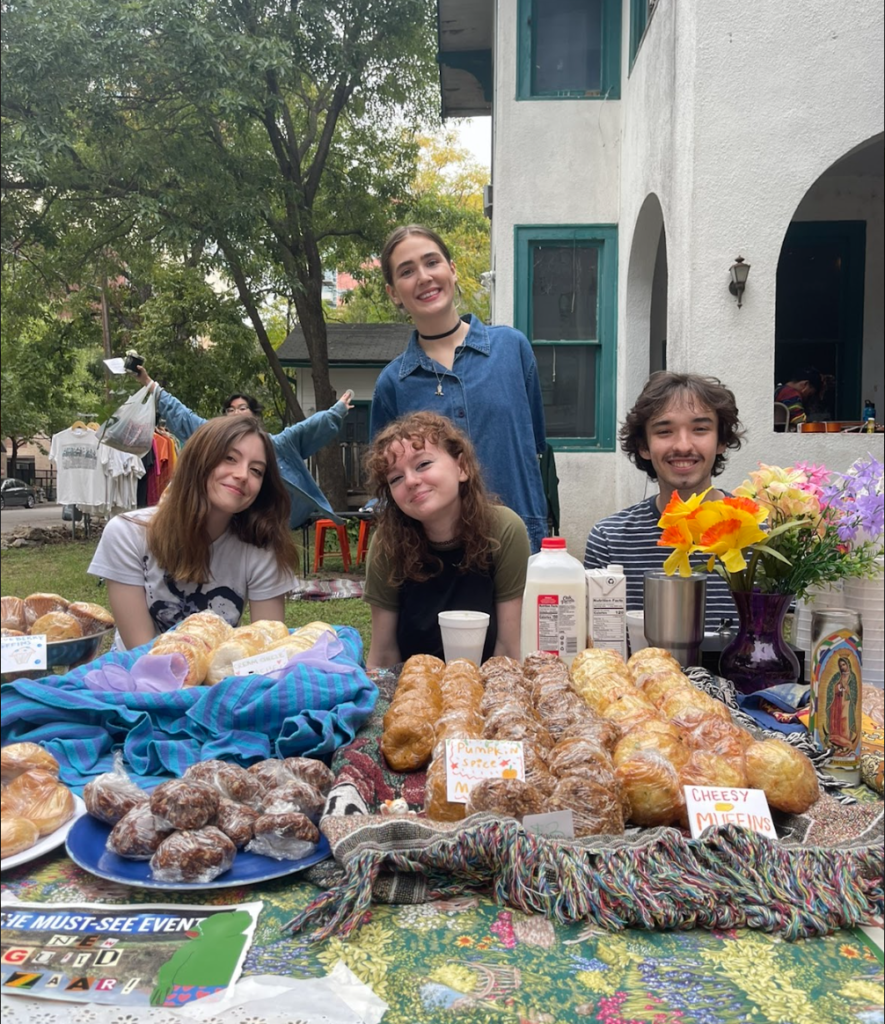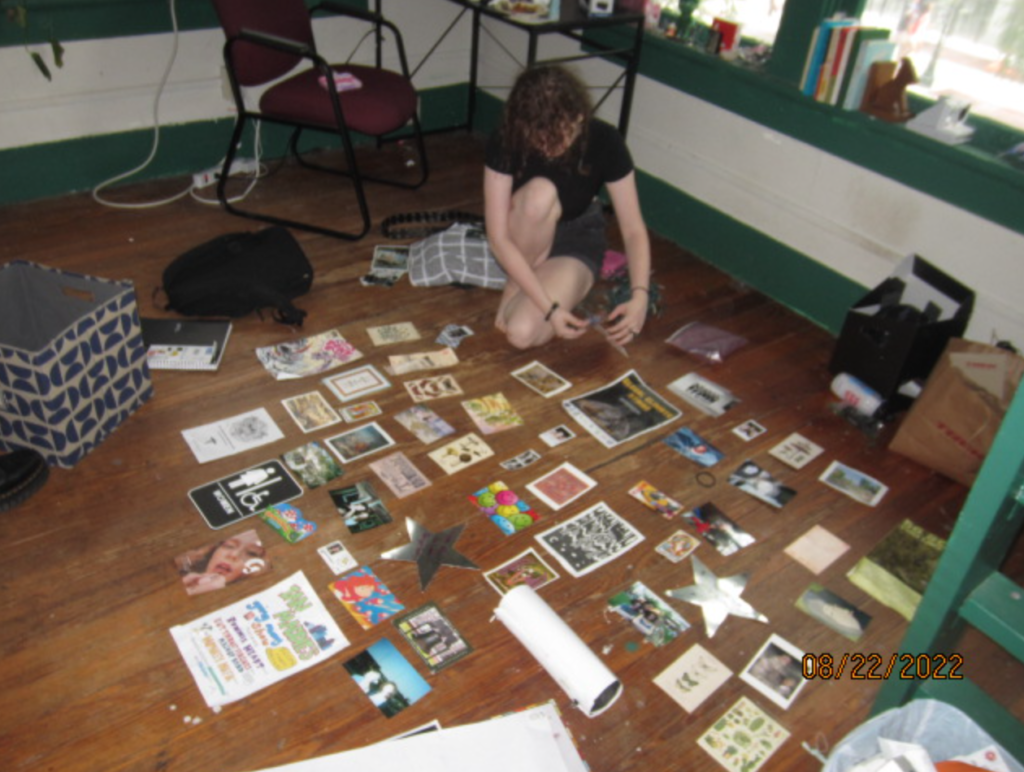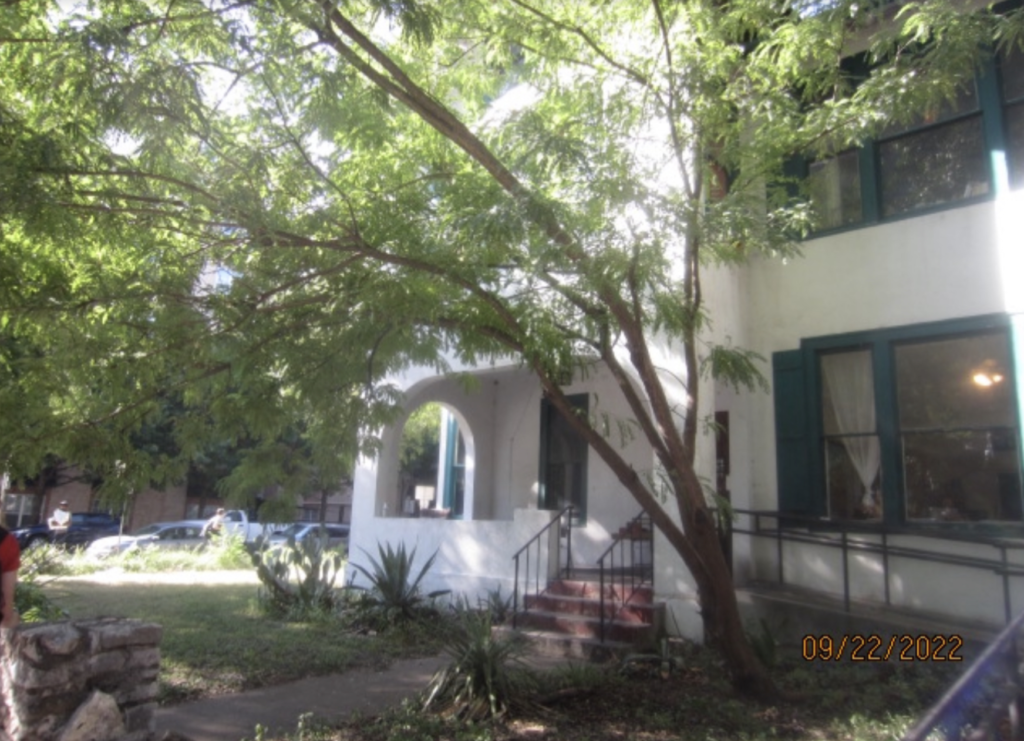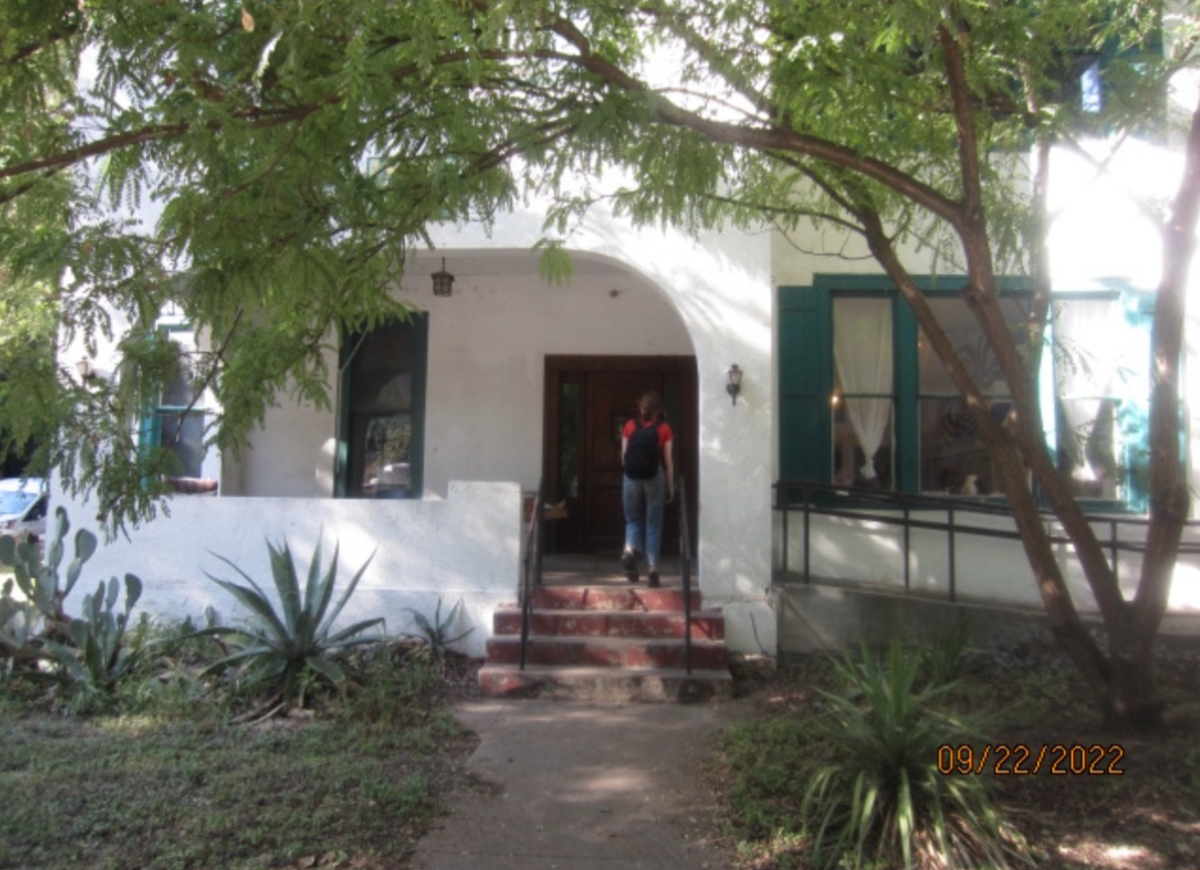This article is part of the Student Welfare Series.
Students report on what it’s really like living in college town co-ops, their seldom spoken-of benefits, and the role they play in community college districts.
by Ava Vano
“Co-op.” What do you think of when you hear the word? Commune, party house, close-quarters, a billion roommates?
Aside from these misconceptions with some underlying truth to them, its residents find that co-ops provide students the opportunity for more affordable housing, a sense of community, and many other benefits. Living in a co-op myself, I interviewed ACC students living in co-ops about their experiences in an attempt to dissect its relatively unknown culture ever-present in Austin.
Student co-ops are housing cooperatives that students personally work to maintain. Most co-ops follow the system of doing labor to cut down on costs, thus making rent cheaper. Labor includes tasks ranging from cooking dinners to cleaning bathrooms.
Members receive kitchen access and meals, and utilities are included in the rent. Student co-ops typically range from about 15 housemates to upwards of 130 housemates.

There is a co-op for everyone as there are academically focused, substance-free, plant-based, pet friendly options among many others. They are democratically run as members vote at house meetings on important house decisions such as budgeting, and the only requirement is to be a student, so tenants get the opportunity to meet many different kinds of people.
Libby Connolly (she/they) is a first-year ACC student. This is her first semester at New Guild and her first time living in a co-op. Moving out can feel isolating for many community college students who do not have the chance of living in a dorm or on some sort of campus. Co-ops seem to provide a solution to that problem, hosting a sense of community within their walls.
“I do feel a sense of community because it’s interesting to be in a space where I know everyone really well,” Connolly said. “Everyone collaborates together and mutually cares about each other and the house.”

Unlike the assumption that the aspect of affordability would incentivize many other community college students to live in co-ops – the opposite is true. Connolly shared her experiences living at New Guild this past semester, saying “It does feel a little weird when the majority go to UT, because my main goal is to transfer and they’re already there.” Co-ops seem to be an underlooked resource for community college students.
Foster Milburn (he/they) is another first-year ACC student who lives at a 21 St. Co-op. Foster speaks about the initial hesitance they had towards the co-op, saying “I feel at home now. At first it was a little scary, but there is something for everyone; it teaches you how to work together.”
“I’m way less isolated… I get support [from housemates] about assignments and get help with anything I might need,” Milburn said.
There appears to be a general consensus that co-op living teaches you how to find and work within a community. Isolation is a big problem for college students, especially in the post-pandemic world. Foster spoke about preferring living in a co-op rather than living in an apartment as they did in Dallas.

“I’m way less isolated… I get support [from housemates] about assignments and get help with anything I might need,” Milburn said.
Communal living offers the skills and assets of everyone living under the same roof and provides mutual support. It is also beneficial to always have a group of people to talk to, vent to, or even just simply be around. “There’s always people around, but no one’s gonna question if you need to recharge. When you’re ready to come out, there’s always someone,” Milburn said.
Now for my personal experience living in a student co-op (New Guild, specifically). Moving from Fort Worth to Austin as a first-year at ACC was a jarring experience and I was initially unsure about living at New Guild. But, I could not feel more secure in my decision.

It’s saved me a lot of money not living in an apartment and I have built-in friendships with my housemates. There’s always something to do and never a dull moment. It’s also really motivating to be surrounded by other students with similar interests and morals as me. I truly enjoy helping out the house and have learned to consider the impacts of what I do or don’t do within the co-op.
I could not recommend it more, especially to ACC students, as it can be very difficult to make friends at community college and the affordability is virtually unmatched.
Student co-ops are an extremely important resource that has proved to be a beneficial facet to community college students. Democratically run and community-based, co-ops give students the opportunity to function within a group of students all working together to maintain a home.




